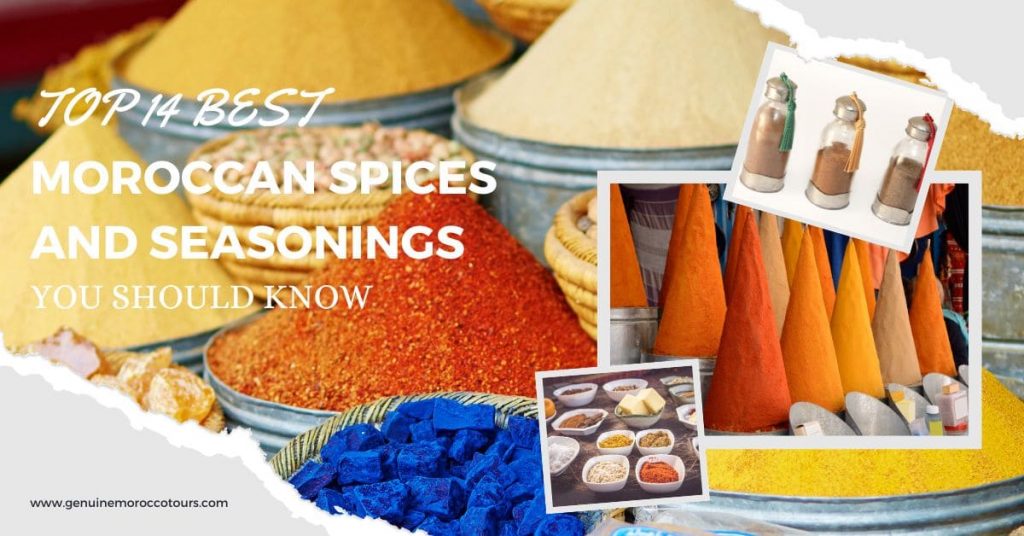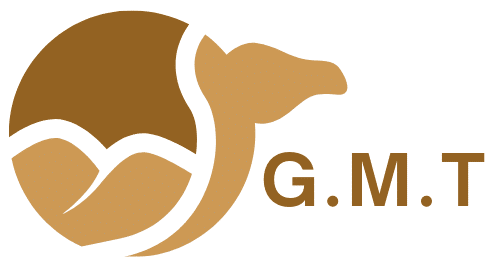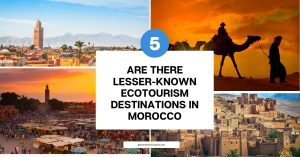
Top 14 best Moroccan spices and seasonings you should know about and keep in your kitchen. When you think about Moroccan food, your senses take you to a world of delicious and unique fragrances. Because of Moroccan spices, anybody can tell when a food is cooked by the aroma that spreads throughout the home.
What Are The Most Used Spices In Morocco Cuisine?
1-cayenne pepper(felfla sudaniya):
The most common spice in Moroccan dishes is hot pepper. It rapidly distinguishes a dish due to its robust flavor, yet due to its comparatively mild flavor, it is adaptable. The bulk of Moroccan recipes don’t always call for chili pepper. Moroccans frequently combine this spice with paprika, its opposite.
What are the benefits of Cayenne?
- Pain relief.
- Helping in losing excess weight.
- Improving heart and arterial health.
- Preventing nasal congestion.
- Strengthen immunity.
- Reducing the chances of getting cancer.
- Reducing the severity of symptoms associated with psoriasis.
- Improving eye health.
2- Cinnamon (karfa):
Without a doubt, cinnamon has established a name for itself across the world. Around the world, they are now a well-liked component of hip beverages and desserts. Cinnamon, however, has been used in Morocco for a very long time. The Moors of antiquity did in fact sell cinnamon. It was a costly and rare spice, and in some respects it still is.
Moroccan meat-based cuisine often includes cinnamon’s sweet and woodsy taste in addition to sweet dishes. Additionally, harira and other conventional soups include this spice.
What are the benefits of Cinnamon?
- Anticoagulation.
- Reducing inflammation and fighting germs.
- Positive effect on the brain
- Supporting the body with important nutrients.
- Reducing blood sugar levels.
- Increase the body’s immunity.
- Relieve menstrual pain.
3-Turmeric (Quekoum):
Turmeric is the best food coloring agent. Moroccan cuisine relies heavily on turmeric, which is recognized by its distinctive yellow hue. Meals are given a distinct, earthy flavor by it. Many traditional Moroccan dishes, such as pork tagine with plums and chicken and olive tagine, use turmeric.
Golden saffron or turmeric is a spice that adds more than just flavor and color. This Moroccan spice is well-known for its therapeutic benefits. It works as a natural anti-inflammatory and antioxidant and strengthens a number of biological systems.
What are the benefits of Turmeric?
- A powerful anti-inflammatory.
- treating psoriasis.
- Treating arthritis.
- Treating asthma.
- Resisting colds and influenza.
- Stimulating the immune system.
- Wound healing.
- Fight cancer.
- It is beneficial for liver health and removes toxins from the body.
- Weight loss and fat burning.
- Fighting Alzheimer’s.
- Control diabetes.
- Reducing the level of cholesterol in the blood.
4-Ginger (Skinjbir):
Moroccan tagines, stews, and soups frequently include ginger, a potent additional ingredient. As a natural anti-inflammatory and antioxidant, ginger, whether powdered or chopped, provides a number of health advantages.
What are the benefits of Ginger?
- Treating respiratory diseases, including itching and asthma.
- Alleviating nausea and vomiting.
- Alleviates menstrual cramps, in addition to its effectiveness in alleviating menorrhagia.
- Feeling better from the symptoms of motion sickness.
- Reducing blood sugar levels in diabetics.
- Reduces cardiovascular diseases associated with fats.
- Increases the body’s immunity.
5- Black pepper (elbazar):
Black pepper is considerably more widely used than the other Moroccan spices, thus there isn’t much to say about it. Having said that, it is important to remember that black pepper is a common ingredient in Moroccan cuisine. In fact, black pepper is used in exorbitant proportions in the bulk of Moroccan dishes. Black pepper is a common Moroccan seasoning for meat (particularly lamb tagine) and salads.
What are benefits of Black pepper?
- Relieving peptic ulcers.
- Improve oral health.
- Improve digestion.
- Weight loss.
- Maintaining gut health.
- Promoting heart health.
- Cancer prevention.
- Promoting skin health.
- Treating asthma and colds.
6-Aniseed (nafaa):
Anise seeds, which have a licorice-like flavor, are mostly utilized in Moroccan delicacies like qarachel, cookies, and bread. These spices are also used as flavor enhancers in several soup and tagine dishes.
Anise seeds offer a wide range of health advantages, much like many Moroccan spices. Additionally, it has anti-inflammatory properties. It also has antibacterial and antifungal qualities. Anise seeds are especially high in calcium. It activates nerves and muscles while enhancing bone density.
What are the benefits of Aniseed?
- Promote digestion and soften the stomach.
- Treating indigestion and getting rid of flatulence.
- Exposing gas, as not treating the gas problem causes the development of diseases in the long term, such as stomach pain, severe chest pain, and muscle spasms.
- Enhancing digestion and appetite.
- Promoting respiratory health.
- Wound disinfection.
- Alleviating spasms and cramps.
- Alleviates pain and helps relax.
- Treating sleep problems and disorders and treating insomnia.
- It helps soothe intestinal cramps experienced by newborns.
- Treating menstrual problems.
- Useful for breastfeeding.
- It has the ability to kill some types of insects, such as lice, simply by applying it to the scalp.
- Alleviating some skin problems, such as psoriasis and scabies.
7-Cumin (kamoon):
Any Moroccan dish benefits from cumin’s strong taste and scent. Due to the potent flavor combinations of these spices, Moroccans are precise in their usage of them. Locals frequently add cumin to eggs, tagines, grills, and salads, but only when they want a certain outcome. Cumin is a common ingredient in grilled kofta, a typical Moroccan cuisine.
Since it was introduced to the market, cumin has been used to cure diarrhea and indigestion. Due to the high levels of vitamin C, iron, and fiber in cumin, it has also been demonstrated that it boosts immunity.
What are the benefits of cumin?
- Strengthen the immune system.
- Preventing anemia.
- Promoting digestive health.
- Prevention of various diseases.
- Helping with weight loss.
- Useful for skin care.
- Reducing blood cholesterol.
- One of the benefits of cumin is that it stimulates breastfeeding, by increasing the secretion of milk in the breast due to the presence of thymol compounds.
8-Paprika (felfa hlouwa):
Paprika is a Moroccan word for the sweet material formed from powdered dried pepper. Cayenne pepper is a fiery complement to sweet pepper. Moroccans use sweet peppers in a variety of dishes. Salads, stews, and soups benefit from their color; it is also used to season meat dishes.
What are benefits of Paprika?
- Strengthening the immune system.
- Protection from anemia.
- Promoting eye health.
- Fetal nutrition during pregnancy.
- It helps fight excess kilograms, thus fighting obesity.
- Promoting digestive health.
- Promoting nervous system health.
- Maintaining skin health and improving its appearance
9-Saffron (zafrane):
Saffron is often regarded as one of the most famous spices in the world, and it is unquestionably a global culinary flavor. The majority of the world’s saffron supply is sourced from a few nations, notably Morocco. However, in Morocco, you may expect to buy these spices at comparatively low costs!
Despite its unique flavor, saffron is difficult to describe in words. It’s described as pleasant and mildly cheery. A tiny amount quickly adds flavor, color, and scent to the food.
Saffron enhances practically every food, from tagines to sweets such as chebakia. If you wish to stick to authentic Moroccan flavors, make Moroccan Saffron Chicken.
What are benefits of Saffron?
- source of high nutritional values.
- Asthma treatment.
- Fight depression.
- Sleep disorders.
- Fight cancer.
- treat nerve problems associated with aging, such as memory loss, Parkinson’s, and Alzheimer’s.
- Treatment of menstrual disorders.
- Very useful for heart and blood pressure patients.
- It is a treatment for vision loss caused by aging, and it also contributes to the treatment of some eye diseases.
- It may have positive effects for pregnant women if taken in moderation and properly
- Enhancing athletic performance and reducing feelings of fatigue in men while exercising.
- May reduce psoriasis symptoms.
- Expel gases, get rid of flatulence, treat pain, and treat alopecia.
10- Ras elhanout (ras elhanoty):
Ras El Hanout is the one to get if you want to bring some Moroccan tastes home with you. This spice brings out the best Moroccan spices – there are over a dozen of them! Ras el hanout is commonly made out of cardamom, cinnamon, turmeric, cayenne pepper, and nutmeg.
Ras el hanout is not widely available because of its intricacy. However, Morocco is unquestionably the greatest place to begin your hunt for this spice. Take note that each kind has a somewhat distinct flavor, so browse around before you buy!
Ras el hanout is a more specialized spice than saffron. It’s common in classic upmarket dishes like mrouzieh, tagine, and couscous.
What are the benefits of Ras elhanout?
- It maintains the functioning of the digestive system because it contains nutmeg.
- It gives activity and vitality to the body.
- It works to produce milk in the mother after giving birth.
- It is used to treat the symptoms of the common cold.
- It strengthens joints and helps treat rheumatism.
- It strengthens nerve fibers and increases their durability.
- It helps increase and develop immunity.
- Helps regulate blood circulation.
- It increases the production of red blood cells and thus treats anemia.
11-Nutmeg (Basbesa):
Nutmeg has a special place in Moroccan cooking. It’s commonly found in seasonal cuisines, but it may also be used to stews, couscous, or casseroles. Because of its sweet and nutty flavor, this spice is frequently used as an ingredient or garnish in sweets. Moroccans occasionally season beef dishes with nutmeg.
Given that Morocco is the world’s premier tourist destination, it is also full of wonderful things that are unique and different from other nations, but these spices are among the secrets of Moroccan cooking that make you fall in love with Moroccan food, become addicted to it, and want to learn more about its distinctive flavors.
What are the benefits of Nutmeg?
- Promoting digestive health.
- Improve skin.
- Toothache reliever.
- Promote brain health.
- Pain reliever.
- Help with sleep.
- Promoting liver health.
- Regulating blood pressure.
- Preventing and treating depression.
- Reducing bad cholesterol levels in the body.
- Treatment of diarrhea.
- Preventing cancer.
12-Fenugreek seeds (elhalba):
Fenugreek seeds are popular in Moroccan chicken recipes because of their aromatic and astringent flavor. Although the herb itself has a pleasant flavor, Moroccan cuisine frequently uses the plant’s bitter seeds to lend character to the meal.
Aside from its unique flavor, fenugreek is well-known for its health advantages, which include reduced blood sugar and cholesterol levels, as well as increased testosterone levels. Furthermore, it promotes lactation. Breastfeeding women in Morocco hunt for meals containing fenugreek to assist them in nursing their newborns.
What are the benefits of Fenugreek seeds?
- Fenugreek helps you reduce the chances of inflammation and infection, such as Pain and swelling in the muscles and lymph nodes. Stomach ulcers and infections. Infection of tissues under the surface of the skin. tuberculosis. Chronic cough. Cancers. Gout. Kidney infections.
- Improve digestion problems
- Reducing blood cholesterol levels
- Promote milk flow in breastfeeding
- Adding flavor to food
- Weight loss
- Improve skin health
- In addition to reducing your risk of internal infections, fenugreek is also used to prevent skin problems, such as: Wounds. Leg ulcers. Sciatica. Dandruff. Eczema.
13- HARISSA
Using roasted red peppers, garlic, chili peppers, olive oil, and spices like cumin and coriander, harissa is a crimson, hot paste that is typical of Morocco. Although making harissa at home appears simple, Moroccans prefer to purchase it already prepared at spice markets and neighborhood stores.
What are the benefits of Harissa?
- Anemia treatment.
- Enhancing digestion.
- constipation treatment.
- Treatment for diverticulosis and intestinal ulcers.
- Protection against colon and stomach cancer.
14-Oregano (zaatar):
Coriander is excellent in tea and is also occasionally used in Moroccan dishes. For a unique flavor, I particularly enjoy adding some za’atar to my ground beef for kafta.
Although coriander powder is less frequently used in Moroccan cooking, you might want to buy fresh or dried coriander leaves when visiting Morocco. It may be used to season salads, seafood dishes, and soups.
To manufacture your own Moroccan coriander powder, you may alternatively dry and crush the herb.
What are the benefits of Oregano?
- The ability to deal with bacteria and fungi more effectively than antibiotics.
- It is very useful in treating winter symptoms and solving respiratory problems, such as Wet cough. asthma. Chronic bronchitis. Relieves blockage and balances excess or deficiency of mucus, which is very important in cases of colds.
- Its benefits are that it treats problems and pollution in the digestive system, including Gases. diarrhea. Parasites. Pathogenic bacteria and is antibacterial. It is also considered useful in cleaning blood and urinary tract infections.
- Fighting cancerous diseases.
- Skin treatment.
- Benefits of thyme for blood pressure.
- Improve mood.
You may be interestring reading Most Popular Food & Drinks In Morocco
Read Also:



